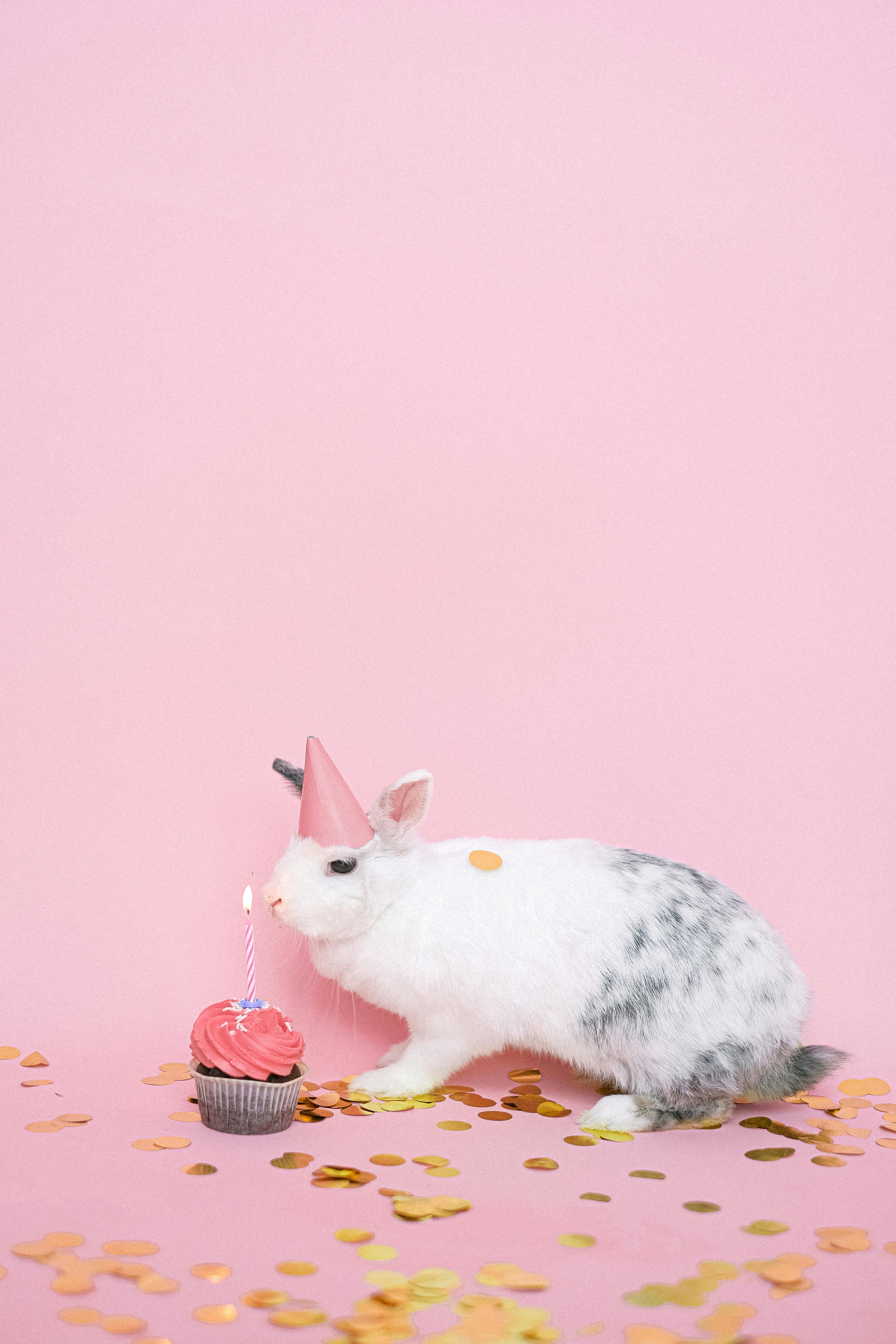Effective Ways to Care for Your Netherland Dwarf Rabbit in 2025
Netherland Dwarf rabbits have captured the hearts of many pet lovers with their cute and compact size. As one of the smallest rabbit breeds, they are ideal companions for families and individuals alike. However, caring for a dwarf rabbit requires knowledge and commitment to ensure their health and happiness. In this article, we’ll explore essential care tips, including habitat setup, diet, grooming, and socialization, to help you provide the best environment for your pet rabbit. Whether you're a seasoned rabbit owner or considering bunny adoption, understanding these aspects will enhance the quality of life for your furry friend.
Owning a Netherland Dwarf can be an immensely rewarding experience. From their playful demeanor to their affectionate nature, these small rabbits bring joy into our lives. We'll provide you with a comprehensive guide covering various facets of dwarf rabbit care while emphasizing the importance of rabbit safety and health. So, let's hop into the details!
Creating the Perfect Habitat for Your Dwarf Rabbit
Developing an appropriate habitat for your Netherland Dwarf rabbit is crucial for their well-being. Dwarf rabbits require a safe, comfortable, and spacious living environment that mimics their natural habitat. Start by selecting a rabbit-proof area within your home or consider an outdoor shelter if the climate permits.
Understanding Dwarf Rabbit Housing Options
When it comes to housing your dwarf rabbit, there are two main options: indoor and outdoor housing. Indoor rabbits benefit from a controlled environment, safe from predators, and can interact with family members regularly. Outdoor rabbits need sturdy, weather-resistant housing that protects them from harsh weather conditions while allowing for fresh air and sunshine.
Key Features of Dwarf Rabbit Habitats
Your rabbit's habitat should include a spacious cage that allows them to move freely and includes areas for sleeping, playing, and littering. Use bedding materials that are safe and absorbent, avoiding cedar or pine shavings which can be harmful. Incorporate hideaways and tunnels for mental stimulation. Additionally, ensure the space is free from hazards like electrical cords or toxic plants.
Essential Rabbit Supplies for Comfort and Safety
In addition to a suitable cage, you’ll need specific supplies. Invest in high-quality rabbit food, fresh hay, and clean water bottles or bowls. Provide chew toys made specifically for rabbits to keep their teeth healthy and satisfy their chewing instincts. Regularly clean their habitat to maintain hygiene and prevent diseases. As a general rule, strive for a layout that allows your dwarf rabbit to express natural behaviors.
Nutrition and Diet Essentials for Your Dwarf Rabbit
Proper nutrition is vital for the health of your Netherland Dwarf. A well-balanced diet contributes to their overall well-being and longevity. Understanding their specific dietary needs will help you prevent common rabbit health issues.
Feeding Guide for Your Dwarf Rabbit
The main component of your dwarf rabbit's diet should be high-quality hay, which aids digestion and maintains dental health. Fresh vegetables and a limited amount of pellets provide essential nutrients but should not dominate their diet. Be cautious with fruits—they should be offered in moderation due to high sugar content.
Common Rabbit Diet Mistakes to Avoid
One prevalent mistake rabbit owners make is relying too heavily on pellets. Pellets may not provide enough fiber, which is crucial for a healthy digestive system. Additionally, avoid feeding your rabbit human food, which may not be safe for them. Familiarize yourself with safe and unsafe foods, and always introduce new items gradually to monitor for any adverse reactions.
Signs of a Healthy Diet
Healthy rabbits are active, have bright eyes, and maintain a good weight. Monitor your rabbit's droppings; they should be firm, round, and plentiful. A sudden change in appetite or droppings may indicate health issues requiring veterinary attention. Ensure constant access to fresh water, minimizing sugary treats that can lead to obesity.
Rabbit Grooming: Essentials for Optimal Care
Regular grooming is essential for maintaining your dwarf rabbit's coat and overall health. Rabbits are naturally clean animals, but they need assistance to keep their fur free of mats and debris.
Grooming Techniques for Dwarf Rabbits
Brush your rabbit's fur regularly to prevent matting, especially during shedding seasons. Use a gentle brush specifically designed for rabbits. Start grooming sessions in a quiet place to increase comfort and reduce stress. Monitor their skin for signs of irritation or pests that may require veterinary care.
Bathing and Cleaning Your Rabbit
Generally, rabbits do not require bathing unless they become extremely dirty or have a health issue. In such cases, use specialized rabbit shampoo and avoid getting water in their ears. Instead of bathing, focus on spot cleaning and maintaining a clean litter box.
Common Grooming Mistakes to Avoid
Many rabbit owners underestimate the importance of routine grooming. Neglecting this can lead to serious health concerns, including skin infections. Avoid overstressing your bunny during grooming by handling them gently and allowing breaks. Regular grooming not only helps in bond building but also provides you an opportunity to check for unusual signs of health issues.
Understanding and Enhancing Rabbit Behavior
One of the unique joys of having a Netherland Dwarf is understanding their behavior, which can be quite expressive. Recognizing their behavioral patterns will help you better nurture their emotional and social needs.
Rabbit Socialization Tips and Techniques
Socialization is vital for rabbits as they thrive on interaction. Spend time each day playing and bonding with your rabbit. Consider using toys to encourage engagement and learning. Slowly introduce your rabbit to new people and environments to build their confidence.
Understanding Dwarf Rabbit Communication
Rabbits communicate through various vocalizations and body language. A content rabbit may purr, while thumping may signify distress. Learning these cues will enable you to respond effectively to your dwarf rabbit's needs, fostering a strong bond.
Ideal Playtime Activities for Dwarf Rabbits
Rabbit playtime is crucial for mental stimulation and physical health. Provide a variety of toys, such as chew toys, tunnels, and cardboard boxes, to keep them entertained. Incorporate exercises like hopping courses or interactive toys that challenge their intelligence, enhancing their playful nature.
Prioritizing Rabbit Health and Safety
Maintaining your Netherland Dwarf's health requires consistent monitoring and regular veterinary care. Understanding common health concerns and disease prevention will ensure their well-being over time.
Common Rabbit Health Issues
Dwarf rabbits can be prone to specific health issues, including obesity, dental problems, and gastrointestinal stasis. Regular veterinary check-ups can help identify and treat potential health concerns early, ensuring your rabbit lives a long, healthy life.
Rabbit Vaccination and Health Monitoring
Vaccinations play a critical role in preventing severe diseases. Consult with a veterinarian for a vaccination schedule that meets your rabbit’s needs. Watch for any changes in behavior or physical appearance; these may indicate underlying health issues requiring attention.
Ensuring Rabbit Safety at Home
Rabbit safety includes rabbit-proofing your home to prevent accidents. Keep toxic plants, chemicals, and small objects that could be ingested out of reach. Providing a safe environment minimizes risks and enhances your rabbit’s well-being.
Conclusion: Caring for Your Netherland Dwarf Rabbit
Caring for a Netherland Dwarf rabbit is an endeavor filled with joy and responsibility. Understanding their needs—from habitat and diet to grooming and health care—equips you with the knowledge to provide a fulfilling life for your pet. By being proactive in care and learning about rabbit behavior, you'll not only enrich your rabbit’s life but also deepen the bond you share. Always remember that a well-cared-for rabbit is a happy rabbit, and they will reward you with love and companionship for many years to come.
 example.com/image2.png
example.com/image2.png
 example.com/image3.png
example.com/image3.png 